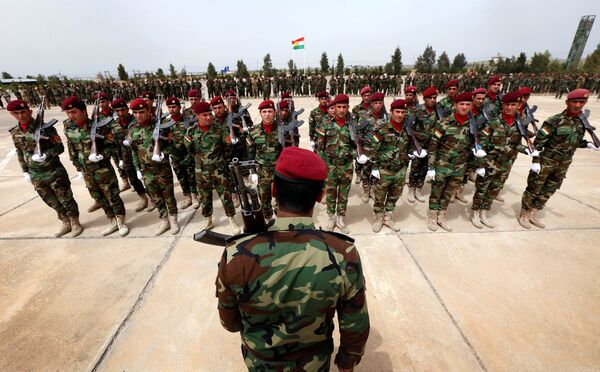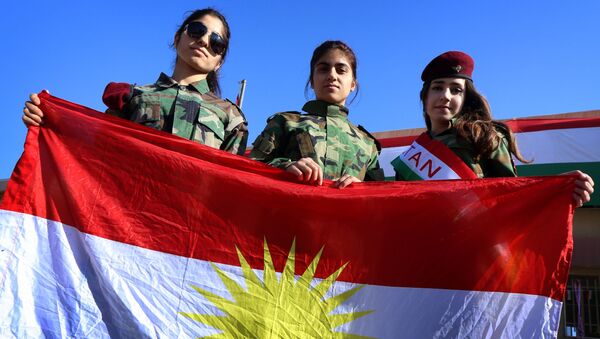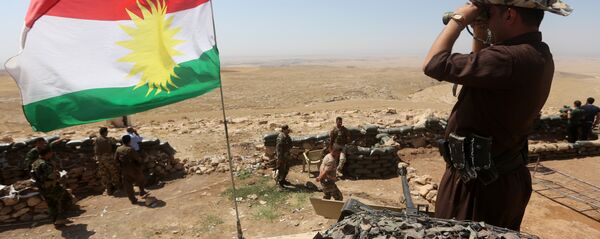The planned independence referendum in Iraqi Kurdistan will be held on a civilized and democratic basis, Keffah Mahmud, the information adviser to the Office of the President of the Kurdistan Region, told Sputnik Arabic, adding that it is up to the people of the region to determine their fate.
"There is no question of incorporating lands, whose inhabitants are against it, into Kurdistan. There is an agreement that the residents have the final say. For example, in Sinjar [Shingal District, Nineveh Province of Iraq], people oppose entering Kurdistan, which means that no one will force them to do it," Mahmud told Sputnik, stressing that Iraqi Kurdistan's authorities have taken a similar approach toward other regions which don't support the independence vote.
"We call upon all public organizations to take part in the monitoring process during the referendum to ensure that it will be held on a legal and free basis, without political infighting," he said.
Speaking to Sputnik, Mahmud drew attention to the fact that the Kurdistan Region has made significant progress since 2003.
"Of course, the growth has been slowed down after the blockade which was imposed [on the Kurdistan Region] in 2014, depriving it of its share of the federal budget to provoke crisis," the adviser noted, "Then the war on terror began, but Erbil was able to resist [terrorist] attacks and became a shelter for many Iraqis, not just the Kurds."
"The prosperity of Kurdistan is constantly growing," Mahmud told Sputnik, "Our government has managed to reduce poverty from 50% to 5%. Previously, we had only one university, now there are more than 20. Erbil has become the pride of the Iraqis."

"The Kurdish people deserved the right to choose independently what they want: independence, confederation or federation," he underscored.
Mahmud emphasized that even if Kurdistan gains independence it will always be Baghdad's ally.
"We cannot break the relations between the Iraqis and the Kurds, which have been evolving for hundreds of years. We can keep good relations and be proud of each other," he said.
Meanwhile, Turkey, Iran, and Iraq have signaled their concerns regarding the planned referendum.
In his op-ed for RIA Novosti, Gevorg Mirzayan, associate professor at the Department of Political Sciences of Finance University of the Russian Government, underscored that the situation is more complicated than it seems.
On the one hand, Iraqi Kurdistan has been a de facto independent entity for a long time. On the other hand, if it becomes a de jure sovereign state it may trigger a domino effect throughout the region.
In this context Ankara and Tehran's concerns are quite understandable: both countries host large Kurdish communities.
"The transformation of the de facto independent Kurdistan [Region] into a de jure independent [Iraqi Kurdistan] could trigger a chain reaction that would lead to the collapse of Iraq and would not allow [Baghdad] to preserve the state at least in a federal form," Mirzayan wrote.
According to the academic, the Iraqi Kurdish leadership may reserve some room for maneuvering if the Kurds remain part of the Iraqi "confederation": it would have allowed Erbil to preserve good relations with Baghdad and maintain Kurdish-Iraqi cooperation on very good terms.
Earlier in June, President of the Iraqi Kurdistan Region Masoud Barzani announced that the much-discussed independence vote will take place on September 25.


